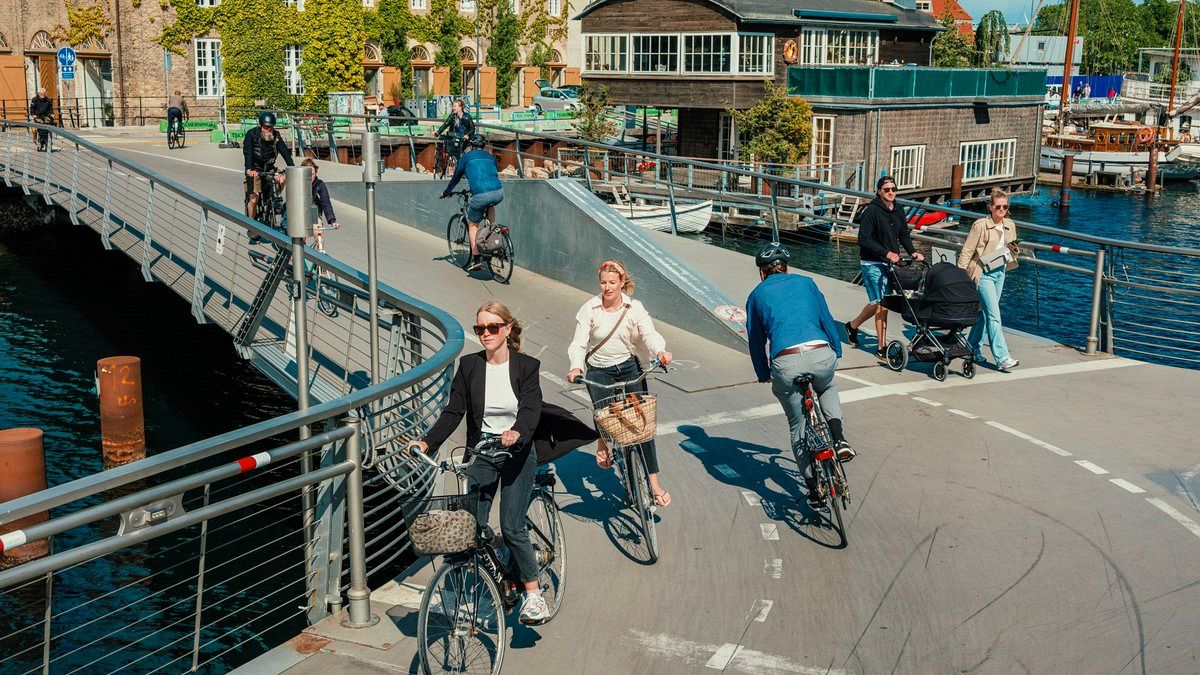Copenhagen is well known for embracing sustainability and now the Danish capital is extending its green initiative to tourists.
Wonderful Copenhagen, the official tourism organisation of the Capital Region of Denmark, has launched a project which will transform visitors’ green actions into currency for cultural experiences.
The city is a hugely popular destination, recording over 12 million overnight stays in 2024.
Now there’s even more reason to visit thanks to the newly launched ‘CopenPay’.
Kicking off on 15 July, a trial scheme will see visitors encouraged to take part in activities like litter-picking, travelling by public transport - as opposed to using cars or taxis - or biking around the city.
If they choose to get involved, they’ll be able to claim rewards for free lunches, coffees, and glasses of wine - as well as entry museums and kayak rental.
How did ‘CopenPay’ come about and how will it work?
The so-called ‘CopenPay’ scheme was designed to offset the "environmental burden" of tourism, the Copenhagen tourist board says.
"When you travel abroad - if you fly to other places or you travel by car - you pollute," the tourist board's communications chief Rikke Holm Petersen, explains, “One of the things we can change is getting people to act more sustainably at the destination."
The board does admit it’s only one part of a far larger initiative, with Petersen saying the plan is only a "little step towards the green transition.”
Running until 11 August, it will be ‘trust-based’. That means attractions won’t be made to ask for proof that the green activity you say you've done has actually been completed.
"In some attractions, you might have to show a picture of you riding a bike, or of your public transportation ticket," Petersen says.
So far, some 24 organisations have signed up to the pilot scheme - but the government won't be reimbursing the companies behind the attractions.
The move comes following a release of data from 2023’s Sustainability Index which suggests tourists are keen to make more green choices - 82 per cent of people - but have yet to do so - 22 per cent.
What will tourists actually participating in the scheme be encouraged to do?
CopenPay will reward a wide variety of actions taken by visitors such as cycling, participating in clean-up efforts, or volunteering at urban farms, with access to must-visit experiences.
They’ll include offerings from complimentary guided museum tours to sports to free vegetarian lunches made from locally-grown crops.
Some of the experiences will be exclusive to those taking part.
For instance, visitors at the National Gallery of Denmark who collect plastic waste will be invited to take part in a workshop to turn it into a piece of art.
If a tourist decides to take public transport or a bike to Copenhagen's iconic heating plant, they’ll be given the unique experience of skiing down its slope, located on the building’s roof.
Copenhagen officials hope these incentives will prove fruitful for the future of the city’s tourism - and its contribution to green tourism.
“We must turn tourism from being an environmental burden into a force for positive change - and one important step in this transformation is to change how we move around at the destination, what we consume, and how we interact with the locals,” Mikkel Aarø-Hansen, CEO at Wonderful Copenhagen, says.
“With CopenPay, we want travellers - as well as local attractions - to focus on the change, and the choices, that we need to make”.
Copenhagen’s hope now is not only to continue and expand the pilot project - but also to inspire other cities around the world to introduce similar initiatives.


